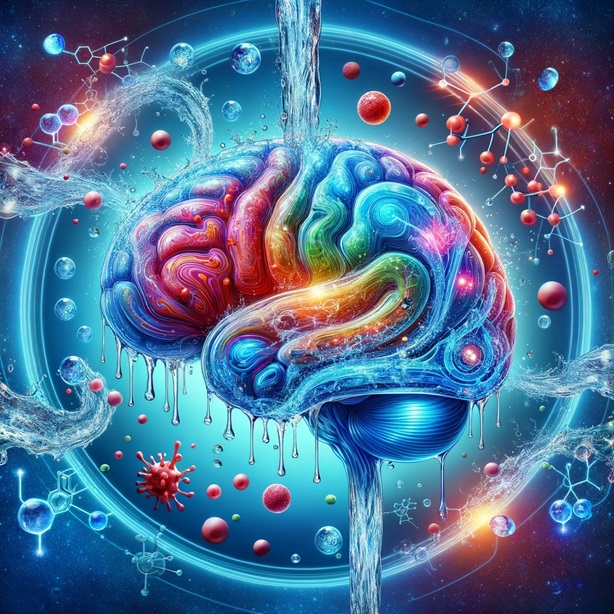The Vital Role of Water in Brain Health
Water's role in the body transcends basic hydration. It is a crucial element that supports the brain's structure and function. Water facilitates the production of energy in the brain cells and is a component of the cerebrospinal fluid, which cushions the brain and spinal cord. It regulates the production of hormones and neurotransmitters, while also being instrumental in flushing out toxins and providing the brain with the nutrients it requires.
Cognitive Consequences of Inadequate Hydration
Dehydration's impact on cognition is more significant than many realize. It can lead to decreased focus, memory lapses, and slowed reaction times. Studies have shown that even mild dehydration can impair cognitive functions across all age groups, with particularly pronounced effects in the elderly and children, whose cognitive functions are more susceptible to fluctuations in hydration.
Hydration and Cognitive Performance: The Science Explained
Scientific research has uncovered that proper hydration correlates with increased blood flow to the brain. This leads to more oxygen and nutrients being delivered, which are necessary for cognitive functions. Brain imaging studies have revealed that dehydration reduces brain volume, affecting the way the brain operates and processes information.
Recommended Water Intake for Cognitive Health
The amount of water needed to maintain cognitive performance varies by individual. Factors such as age, gender, weight, climate, and activity level play a role in determining the appropriate water intake. Generally, the '8x8' rule, which suggests eight 8-ounce glasses of water per day, is a good starting point, but one should also listen to their body and adjust accordingly.
Enhancing Cognitive Functions Through Hydration
Consistent water intake can enhance various cognitive functions. It supports working memory, keeps attention span optimal, and aids in the complex problem-solving process. For tasks that require prolonged focus and vigilance, staying hydrated can result in better performance and more accurate results.
Recognizing and Responding to Dehydration
Identifying signs of dehydration is key to preventing cognitive decline. Symptoms may include thirst, dry mouth, fatigue, headache, and a decrease in urine output. Upon noticing these signs, it is important to drink fluids or eat water-rich foods to rehydrate the body promptly.
Hydration Strategies for Optimal Cognitive Function
Incorporating hydration habits into one's daily routine can be done by starting the day with water, replacing lost fluids after exercise, and eating hydrating foods like cucumbers, tomatoes, and watermelons. Additionally, understanding personal hydration needs and responding to the body's cues are essential for maintaining cognitive health.
Conclusion
Hydration stands as a pillar of cognitive well-being. An adequate intake of water is a simple yet effective tool for enhancing mental performance and safeguarding long-term cognitive health. By understanding the importance of hydration and adopting practices to ensure proper water intake, one can support their brain's functioning and unlock their full cognitive potential.
